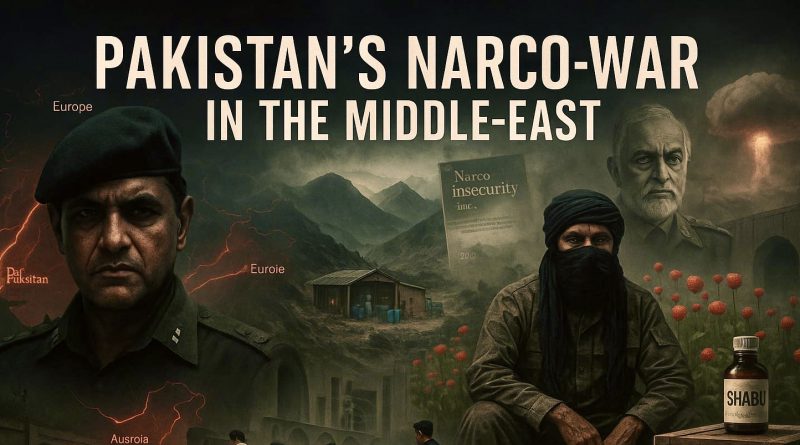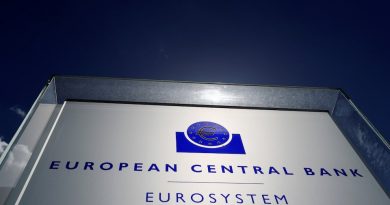Pakistan’s Narco-War in the Arab World: Saudis Lead Drug Arrests of Pakistanis
For Saudi authorities, the rise of Pakistan-linked drug trafficking poses a complex challenge.
In a pattern troubling regional authorities, Pakistani nationals now make up the majority of foreign prisoners in Saudi Arabia, many held on serious narcotics charges. From bustling drug markets in Karachi to methamphetamine (“shabu”) busts in the Gulf, experts and officials are increasingly alarmed by the intertwining of narcotics trafficking, shadow economies, and extremist financing networks rooted in Pakistan.
According to Pakistani government figures, 10,279 Pakistani nationals are imprisoned in Saudi Arabia as of early 2025 — nearly half of all Pakistanis jailed abroad. While Riyadh does not publicly release detailed breakdowns, independent reports indicate that a substantial share of these prisoners are convicted on drug trafficking and smuggling charges.
Saudi media has frequently reported high-profile busts involving Pakistanis. In May 2024, two Pakistani nationals were arrested in Medina for selling crystal methamphetamine and heroin.
A year later, Saudi authorities intercepted a 147-kilogram meth shipment at Jeddah’s port, allegedly linked to three Pakistani nationals. Analysts note that among “hundreds of drug busts” in recent months, the majority of those apprehended have been Pakistanis.
A Growing Methamphetamine Hub
While Afghanistan’s opium fields have historically dominated global narcotics conversations, Pakistan is increasingly seen as a key player in the methamphetamine trade.
In April 2025, Pakistan’s Anti-Narcotics Force seized 200 kilograms of crystal meth hidden in spice packets aboard a Karachi-bound container destined for Dubai. Earlier this year, Philippine customs authorities seized 404 kilograms of meth smuggled from Karachi and concealed as “noodles and custard”.
The pattern suggests that Pakistan has become both a transit hub and an emerging production center. Large seizures of meth precursors like ephedrine at Karachi port — including 540 pounds in 2011 and 1,750 pounds in 2012 — hint at the scale of underground meth synthesis operations.
Regional routes run from Pakistan through Gulf ports like Dubai’s Jebel Ali and onward into Europe and Southeast Asia. Law enforcement across Oman, UAE, and Saudi Arabia increasingly report Pakistani nationals as key suspects in meth smuggling cases.
“Pakistan’s strategic location has long facilitated drug trafficking,” notes a regional narcotics expert. “But meth’s rise has brought new criminal dynamics far beyond traditional opium routes.”
Allegations of State Collusion
Compounding the crisis are persistent allegations that Pakistan’s powerful military-intelligence complex, particularly the Inter-Services Intelligence (ISI) agency, has historically been intertwined with the narcotics trade.
In his 2022 NATO-sponsored study Narco-Insecurity, Inc., researcher David Winston asserts that Pakistan’s ISI “launched several covert operations” with jihadist groups reliant on narcotics trafficking. According to Winston, this covert alliance “extended drug routes” through Pakistan into the Gulf, Europe, and the Balkans.
Winston specifically identifies the Haqqani Network, operating along the Pakistan-Afghanistan border, as a key ISI proxy that relied heavily on drug revenues to sustain operations. “Pakistan invested in their bases and facilitated narcotics flows that funded terrorism,” he writes.
Retired Indian Army General Jagatbir Singh similarly describes Pakistan as a “narco-nuclear” state, where “the deep state enriched itself with drug money while ordinary citizens battled poverty” (Singh, 2022). Singh argues that narcotics revenues were critical to financing Pakistan’s strategic ambitions, including its nuclear program.
Nonetheless, analysts note that patterns of collusion — historic or current — remain difficult to disprove due to the clandestine nature of intelligence operations. “The absence of smoking-gun evidence does not eliminate the reality of structural enablers,” says one European intelligence official, speaking anonymously due to diplomatic sensitivities.
A Shadow Economy Fueled by Narcotics
Beyond state complicity, economic pressures also help drive Pakistan’s entanglement with drug trafficking. UNODC-2024 Report suggests that a significant portion of Pakistan’s informal economy — estimated at over 36% of GDP — may be fueled by illicit trades including narcotics.
Meth production offers high profit margins with relatively low initial investment compared to traditional opiates. Winston’s research warns that as synthetic drugs like meth proliferate, criminal networks will “deepen their global reach,” posing new security threats far beyond Pakistan’s borders.
Meanwhile, disturbing social trends have emerged among incarcerated Pakistanis in the Gulf.
Prominent counter-extremism expert, Zahack Tanvir who spent more than 12 years in Saudi Arabia, noted that some arrested Pakistani traffickers in the Kingdom offered religious justifications for their crimes. Zahack wrote, “Shockingly, some of them justify their actions by arguing that Islam only forbids alcohol, not narcotics”.
Other Pakistanis allegedly argued that selling drugs to Arabs, particularly Saudis, was permissible — an attitude described by Zahack as one combining economic desperation with deep-rooted animosity. “Some even claim it’s permissible to sell drugs to Arabs, while exuding extreme disgust towards Saudis.”
Saudi Arabia’s Dilemma
In Saudi Arabia, authorities face the brunt of these operations. Methamphetamine — known locally as “shabu” — has proliferated despite the kingdom’s notoriously harsh anti-narcotics laws, including mandatory death sentences for drug smuggling.
For Saudi authorities, the rise of Pakistan-linked drug trafficking poses a complex challenge. Riyadh maintains some of the world’s strictest drug laws — including the death penalty for smuggling — yet diplomatic relations with Pakistan complicate enforcement efforts.
Pakistan’s Foreign Ministry has occasionally lobbied for clemency in death penalty cases, such as the February 2025 release of a Pakistani family previously sentenced for drug charges. However, Saudi authorities insist that “zero tolerance” policies will remain in place, amid surging meth demand and growing public concern.
As regional trafficking routes shift and Gulf states grapple with the influx of narcotics, policymakers across the Middle East increasingly view Pakistan’s internal struggles with organized crime as a shared security threat — one that cannot be contained by national borders alone.



